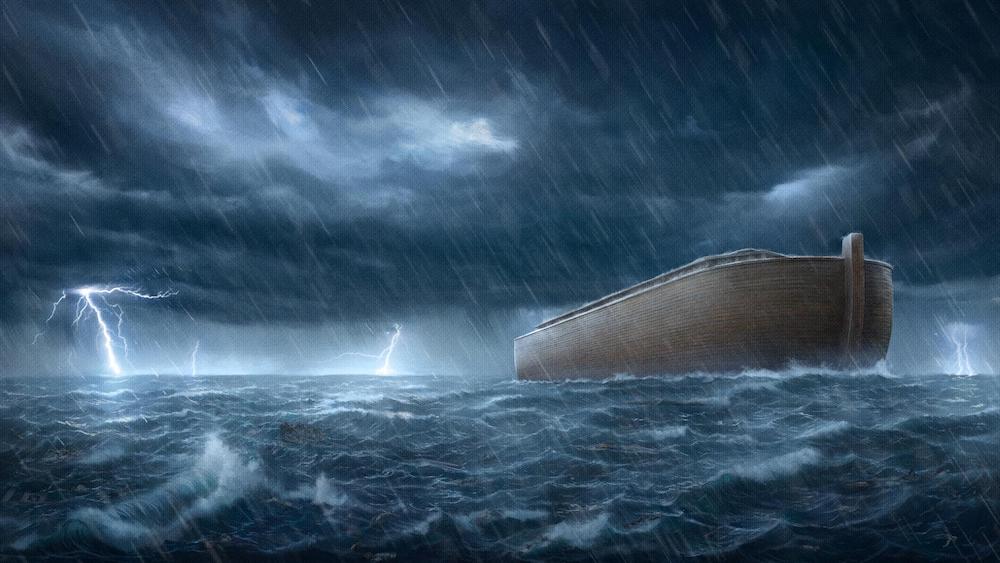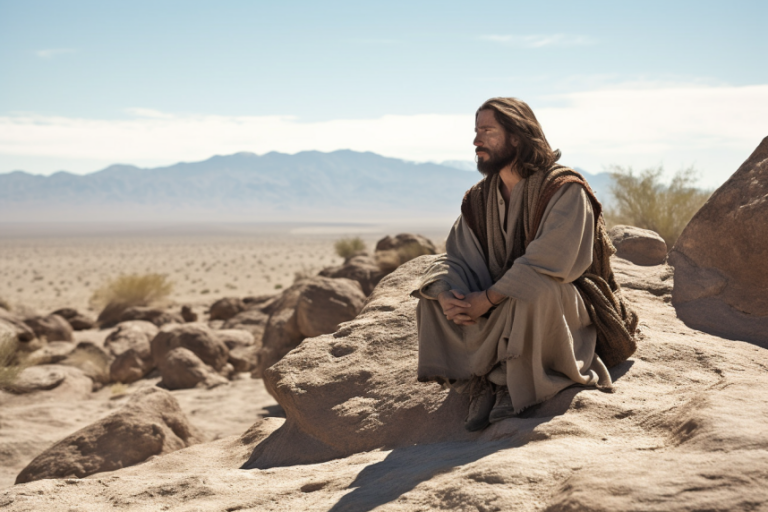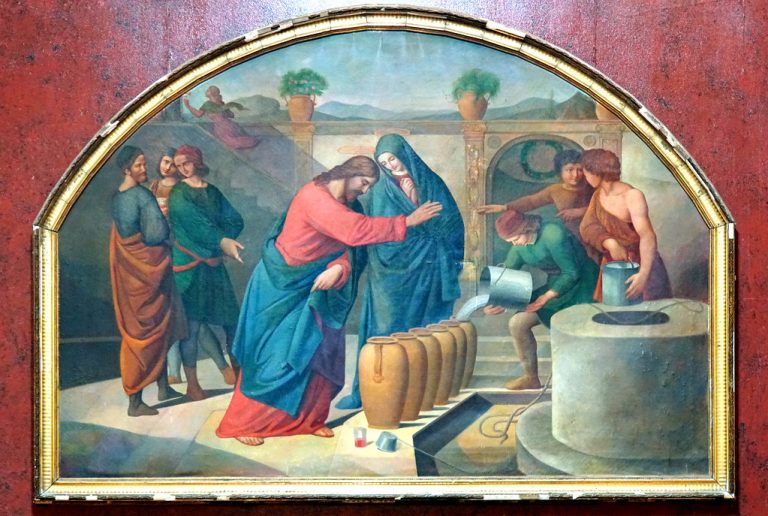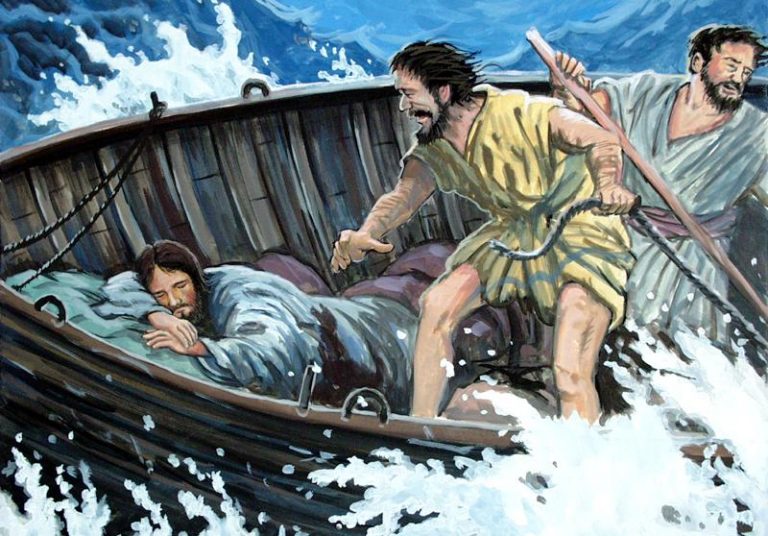Why Did God Flood the Earth?
The story of the Great Flood is one of the most well-known and fascinating tales in the Bible. It tells of God’s decision to cleanse the earth of humanity’s wickedness by sending a flood that destroyed everything except for Noah, his family, and a pair of every animal.
While the story has been the subject of much theological and scientific debate, it remains an important part of many religious and cultural traditions around the world.
In this blog post, we will explore the reasons why God flooded the earth according to the biblical account, the story of Noah and the Ark, and the theological and scientific interpretations of this event.

The Wickedness of Humanity
According to the biblical account, the reason God flooded the earth was because of the wickedness of humanity. The book of Genesis describes a world filled with violence, corruption, and evil, where people had turned away from God and followed their own desires.
The Bible states that God was grieved by the wickedness of humanity and decided to wipe out all living creatures on earth, except for Noah, his family, and the animals that he instructed him to save. The Great Flood, therefore, was a means of purging the earth of sin and starting anew.
The biblical account of the Great Flood raises many questions and has been the subject of much debate among scholars and theologians. Some have questioned the morality of a God who would destroy innocent life along with the guilty, while others have argued that the flood was a necessary act of divine justice.
Despite these debates, the story of the Great Flood continues to captivate and inspire people around the world, reminding us of the power and majesty of God, and the need for humanity to turn towards righteousness and justice.
Noah and the Ark:
The story of Noah and the Ark is one of the most enduring and beloved stories in the Bible. According to the biblical account, God chose Noah, a righteous man, to build an ark and save his family, and pair of every animal from the impending flood. The ark was to be built to the exact specifications given by God, and it would serve as a refuge from the destruction that was to come.
Noah’s task was no small feat, and it required great faith and trust in God. He worked tirelessly for many years to build the ark, enduring ridicule and scorn from his neighbors who did not believe that a flood was coming. However, Noah remained steadfast in his belief in God and his commitment to building the ark.
When the flood finally came, Noah and his family, along with the animals, were safe inside the ark. The Bible states that the rain fell for 40 days and 40 nights, and the flood waters covered the entire earth. But Noah and the other inhabitants of the ark remained safe and dry, cared for by God’s provision.
After the flood subsided, the ark came to rest on the mountains of Ararat, and Noah and his family emerged to begin a new life. The story of the ark has been interpreted in many ways over the years, with some seeing it as a symbol of God’s protection and salvation, while others view it as a warning of the consequences of sin.
Despite these differing interpretations, the story of Noah and the ark continues to be an important part of many religious and cultural traditions around the world. It is a story of faith, obedience, and the power of God to bring new life out of destruction.
The Covenant with Noah
After the floodwaters receded, Noah and his family emerged from the ark to a world that had been transformed by the flood. In response to Noah’s faithfulness and obedience, God made a covenant with him, promising never again to destroy all life on earth with a flood.
This covenant is described in the Bible as a rainbow, a symbol of God’s promise and grace. The rainbow was a reminder to Noah and all of humanity of God’s love and protection, and it was a sign that the world would never again be destroyed by a flood.
The covenant with Noah was an important moment in biblical history, marking a new beginning for humanity after the destruction of the flood. It was a reminder that despite humanity’s wickedness, God remained faithful and merciful, and that there was always hope for a new start.
The covenant with Noah has been interpreted in many ways over the years, with some seeing it as a sign of God’s unchanging nature and others as a symbol of God’s grace and love for humanity. Regardless of the interpretation, the covenant with Noah remains an important part of the biblical narrative, reminding us of the enduring power of God’s love and mercy.
Theological Interpretations:
The story of the Great Flood and Noah’s ark has been interpreted in many different ways by theologians and scholars over the years. While some see the story as a historical event, others view it as a metaphor for spiritual truths and lessons.
One common theological interpretation of the Great Flood is that it was an act of divine judgment against humanity’s wickedness and sinfulness. According to this interpretation, God’s decision to flood the earth was a just punishment for the sins of humanity, a reminder that God is both merciful and just.
Others view the story of the flood as a symbol of God’s grace and salvation. According to this interpretation, the ark represents God’s protection and salvation, and the flood is a metaphor for the cleansing and purifying power of God’s love.
Still, others see the story of the flood as a symbol of the cycle of destruction and rebirth that is a part of the natural world. According to this interpretation, the flood was a necessary event in the cycle of creation and destruction, a reminder that new life can emerge from even the greatest destruction.
Regardless of the interpretation, the story of the Great Flood and Noah’s ark remains an important part of many religious traditions, reminding us of the power and majesty of God, the need for humanity to turn towards righteousness and justice, and the enduring hope that comes from God’s love and protection.
Scientific Explanations
The story of the Great Flood and Noah’s ark has long fascinated people from all walks of life, including scientists and scholars. While the biblical account of the flood is considered by many to be a metaphor or allegory, there are also scientific explanations for the event that have been put forth over the years.
One theory is that a massive flood did indeed occur in the ancient Near East, perhaps as the result of a catastrophic event such as a meteor impact or earthquake. Evidence of such a flood can be found in the geological record, and many scientists believe that it may have been the inspiration for the biblical account of the flood.
Others have suggested that the story of the flood may be a retelling of an earlier myth or legend, one that was passed down through generations of oral tradition before being recorded in the Bible. In this interpretation, the flood is seen as a symbol or metaphor for the cyclical nature of life and death, rather than a historical event.
Some scientists have also pointed to the possibility of a localized flood rather than a global one. The story of the flood may have been a retelling of a local flood that was significant to the people of the time but was later exaggerated or mythologized over time.
Regardless of the scientific explanation, the story of the Great Flood and Noah’s ark continues to captivate and inspire people from all over the world. It is a reminder of the power of nature and the enduring hope that comes from faith and belief in a higher power.
Conclusion
The story of the Great Flood and Noah’s ark is a powerful and enduring tale that has captivated people from all walks of life for thousands of years. Whether viewed as a historical event or a metaphor for spiritual truths and lessons, the story of the flood is a reminder of the enduring power of faith, hope, and love.
From the wickedness of humanity to the faithfulness of Noah and the promise of the rainbow covenant, the story of the flood contains many important themes and messages that are still relevant to us today. It reminds us of the need to live justly and righteously, to seek God’s protection and guidance, and to have faith in the power of love and grace.
As we reflect on the story of the flood and its many interpretations, we are reminded of the diversity and richness of the human experience and the enduring power of faith and belief.
It is a story that speaks to us on many levels, from the scientific to the spiritual, and it is a reminder of the enduring hope and promise that are at the heart of the human experience.

Sangtea Hmar is a passionate leader of the Youth Christian Fellowship at the Electric Vengthlang Presbyterian Church in Aizawl, Mizoram, India. He is the owner of Christiantone.com and is committed to spreading the word of God. He loves to mentor youth and help them grow in their faith.






